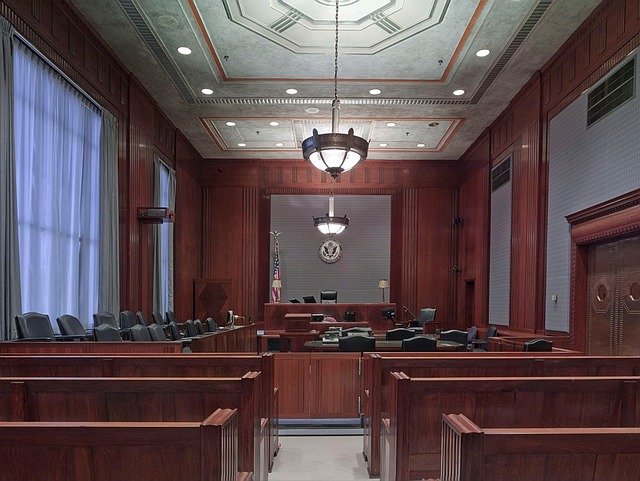As a small business owner, you work hard to protect your business and your assets. In a perfect world, everyone gets along all the time and agrees and authenticates financial agreements. However, as a small business owner, you may be faced with some disagreements at some point in time. Perhaps a customer damaged your property, or perhaps a customer is unhappy with you. It is important to know how to protect yourself and your business when dealing with disagreements. Small claims court is a place where business disagreements can be rectified by a judge. Here is what you need to know about small claims court.
What is Small Claims Court?
Small claims courts provide an alternative to lengthy and costly court proceedings. It is a smaller court that hears disputes between two people. Small claims courts hear civil cases that are most commonly related to contract disputes and personal injury. Small claims court is a good option for small businesses that don’t have the resources to spend on attorney fees. If you have uncollected bills, you can file a claim in small claims court and reduce the collection costs. Over 60% of all cases filed in small claims court are done so by small businesses.
Small Court vs. Superior Court
When dealing with legal issues related to your business, it is important to select the right legal approach. Many businesses can settle disputes in small claims court. Contract breeches, defamations suits, negligence, and personal injury claims can all be resolved in small claims court. More serious matters may require attention from a legal team. Superior court hears a variety of cases including: criminal cases, civil cases, small claims appeals, and misdemeanor appeals. One of the biggest differences between the two is that in small claims court, you are required to file and defend yourself. Whereas in superior court you can seek legal guidance.
How Does Small Claims Court Work?
A claim filed in small claims is filed by the plaintiff. They must provide contact information for all parties involved, details of the incident, and any supporting information. Court proceedings are in a group setting, meaning the judge is hearing claims from other plaintiffs throughout the day. The judge will hear both parties side of the story, and make a decision. Once a decision is made it is up to the plaintiff to collect on the claim.
Small Claims Court Limit
Claims filed in small claims court must be under a certain limit. For individuals, the limit is $10,000. The limit for businesses is $5,000.
Court Costs
Small claims court offers an affordable option for small businesses to settle small legal disputes. The cost to file depends on the amount you are suing for and ranges from $30 to $75. In addition to court costs, you will also need to hire a process server. The average cost of hiring a process server is around $45 to $75 give or take.
Are Court Costs Deductible?
Legal fees associated with securing your income are considered tax-deductible by the IRS. This applies to court filing fees and the cost of hiring a process server. However, legal fees that are more personal in nature, like divorce proceedings or contesting a will are not tax-deductible.
How to Take Someone to Small Claims Court?
Before you can take someone to small claims court you have to make an attempt to settle the dispute. For example, if you are trying to collect on an unpaid client invoices, you first have to make a good effort to collect the debt. A good way to do this is to send a certified letter. If your efforts are in vain, then you can proceed with filing a claim.
Filing a Complaint
Before filing a claim, make sure you are filing your claim in the right court. Each county has its own small claims court. It is important to make sure you are filing at the correct court before proceeding. Failure to do so could result in the court refusing to hear your case, and then you will have to start over. In addition, also pay attention to the timeframe, you can lose your case if you are beyond the statute of limitations. The department of consumer affairs can help you find the right court and also provide information on the statute of limitations, as this can vary depending on the type of legal dispute. Once you know where to file, you can file in person or online.
Taking Someone to Court
Before preparing your claim, be sure to gather your information. You will need complete contact information for all parties involved including full name and address, the details of the incident, and proof of your claim, this can be pictures, receipts, emails, etc…Once you have completed the paperwork a court date will be appointed to you. Your court date may be a few months out, it depends on the amount of cases being heard by the court. After filing, it is the plaintiff’s responsibility to alert the defendant of the intent to sue. A process server is a 3rd party individual who you hire to serve court documents. Court documents must be served by a 3rd party, and proof of receipt must be filed with the court. After the claim and been filed and all parties have been notified, you wait for your court date.
What Happens If You Lose in Small Claims Court?
As the plaintiff in small claims court, if you lose you cannot appeal, only the defendant can appeal. However, if the defendant files a defendant claim against you related to the same case, and you lose on that claim, you may file an appeal but only on the defendant’s claim.
If You Win a Court Case, How Do You Get Your Money?
If the judge rules in favor of the plaintiff, the defendant becomes a judgment debtor. However, the court will not assist with the collection of the debt. It is up to the plaintiff to make collection efforts. The plaintiff may try to collect the debt on their own, or hire an attorney or collection agency to collect the debt. They may also be able to collect by bank levy, wage garnishment, or bank lien. You must provide proof of judgment in order to collect.
Court Resources for Small Business Owners
Navigating court proceedings can be tricky and confusing on your own. Here are some helpful tips:
- Keep in mind the type of case you have. You can learn more about the types of cases that can be heard in small claims here.
- When filing in small claims court, be mindful that different states have different limits. Learn more about claim limits by state here.
- Your state’s self help site can be very useful in locating the appropriate court, and also provide useful tips that can assist with filing and collecting claims.
More Help With Your Small Business Finances
A tax advisor can be a lot more than just a tax preparer, while we are not Lawyers and cannot provide legal guidance, we can help you with your taxes and make recommendations on your finances. For questions about your taxes or to set up a financial strategy session, contact one of the tax experts at Shared Economy today! For more small business tips subscribe to our newsletter.

